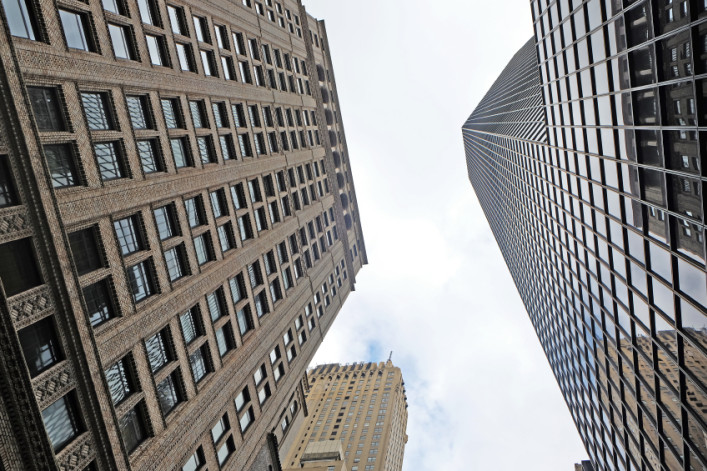5 things you need to know right now before you apply for a mortgage in NYC

You've heard it before: Credit is "tight" and getting a mortgage isn't as easy as it once was. Most NYC real estate talking heads have used the phrase before, referencing it as a reason rents are up and housing inventory is down across the country—and not just in our fair city. So, yes, banks are hesitant to lend to just anyone, and are putting lots of hurdles. (Read about the six surprising roadblocks that can mess with your application.) But after years of hearing this, is there any relief in sight?
Short answer: no. While our experts disagree slightly on the answer to this question, they all agree that the process of getting a mortgage is more cumbersome than ever. New guidelines that take effect this weekend could mean it'll take even longer for your mortgage to come through. In other words, it's time to familiarize yourself with the new world order.
New guidelines may mean delays
Starting on October 3, new guidelines known as "Know Before You Owe" mortgage disclosure rule could throw a wrench into your purchasing plans. Under the new rules, banks will need to have closing cost statements together three days before closing (in the past it's usually happened the day before closing). While this is likely a good thing for buyers in the long term—it gives you more time to look over the mortgage numbers you're committing to—Rolan Shnayer of Citizens Bank says it will surely mean delays on closings in the short-term while lenders get up to speed. "We're going to have a lot of pissed off customers who won’t be able to close on time," he says.
Lots and lots of paperwork
All experts agree that qualifying for a mortgage in 2015 requires more paperwork than ever before. Because of the mortgage crisis of 2008, banks are risk-averse and they want proof, on paper, that you're qualified. "You need to verify, document and have paper trails and explanations for all items on the application and qualifying documents ," says Robbie Gendels of National Cooperative Bank (full disclosure, a Brick sponsor).
For example, if there's been an inquiry on your credit report, you need to provide a written explanation to your loan officer. And every time you open or close an account, you need to have records of it. Even if you borrowed money from a friend 10 years ago, "you're going to need to show the bank statements that show that," says Julie Teitel of EverBank. (In this particular example, an affidavit attesting to this may not be sufficient anymore, she says. One client of hers lent his friend a few thousand dollars and was paid back, and he needed to show copies of his friend's bank statements as well as his own showing the flow of money between them.)
And if you own your own business, you need to show proof of income. Make sure that all your IRS statements reflect the income you're telling the bank you have, Teitel says.
Give it time
Gendels says it usually takes 30 to 45 days for a file to close (in other words, for a lender to get the loan). And expect to be in touch with your loan officer often—emails, calls, and more emails—during that time, Gendel says.
Lock in your mortgage before you apartment-hunt
Because the mortgage application process takes so long—and has so many moving parts—more than ever, Teitel stresses prospective buyers should get pre-approved for mortgages before they start looking for apartments. Many sellers' brokers won't even entertain offers unless the clients have been pre-approved.
But will you qualify? Depends on whom you ask
"The way I look at it is like a pendulum," says appraiser Jonathan Miller. "Before 2008, it swung too far in the direction of no standards at all; then after Lehman, it went completely in the opposite direction. Now, over the course of the last seven years, we’ve seen it get a little less difficult to get a loan."
That said, "If you ask any borrower if they had the sense that up until everything was signed the lender was trying to find a reason to turn them down, they’ll say yes," says Miller.
"Credit is tight, and it’s not loosening up ... I have four herniated discs from all this," says Teitel. For jumbo loans—those for over $625,000—she says, the credit score requirements has gone up. "700 used to be considered really good, now it's 720."
But Shnayer disagrees. "You need more paperwork, for sure," he says. "But the guidelines are loosening up across the board." Especially when it comes to conforming (e.g. non-jumbo loans), he says. Fannie Mae is now allowing a 3 percent down mortgage program (and Shnayer points out that many outer-borough NYC apartments qualify for Fannie Mae-backed loans.)
"But you can also get loans with 15 percent down on multi-million dollar deals," he adds.
However, income requirements, he says, aren't easing up, and they won't anytime soon. What you can afford to pay for an apartment depends a lot on how much debt you have. But as a baseline, if you have no debt, you can qualify for about four times your yearly income, says Shnayer.
A million things can come into play that can affect that, says Shnayer, including high maintenance costs, problems with finances in the building, and the like. But as a general rule he says, "If you make $200,000 a year, you should qualify for an $800,000 mortgage."
Related:
Jumbo loans demystified: What New York City buyers need to know
Don't let the bank get in your way of buying an apartment






















